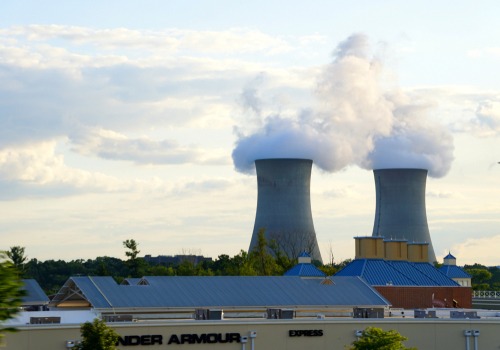
Pennsylvania’s business community has once again made clear its opinion that the controversial Regional Greenhouse Gas Initiative (RGGI) is an energy tax that is being illegally foisted upon the state without the required approval of the General Assembly.
Gov. Tom Wolf’s strategy to sidestep the Republican-led Assembly by using an executive order rather than legislation has been temporarily stayed by the Commonwealth Court of Pennsylvania in response to a lawsuit filed by a coalition of power plant operators and labor unions. Last week, an amicus “friend of the court” brief filed with the court by five Pennsylvania business associations reiterated their stance that the revenue that would be generated from the RGGI’s cap-and-trade program amounted to an actual tax rather than a fee.
If the court rules that RGGI’s carbon trading is indeed a tax, the plan to make Pennsylvania the 12th state to join RGGI will have to be voted on by the legislature and would likely be defeated or die a slow death in the process The brief filed with the court seeks a preliminary injunction blocking Wolf’s order; a date for the court’s decision has not been announced.
“Gov. Wolf and his team of unelected bureaucrats do not have the authority to impose a tax under the constitution,” said Greg Moreland, Pennsylvania State Director of the National Federation of Independent Business. “Every other state that has joined the RGGI has obtained legislative approval because they recognize the General Assembly controls the purse strings, not the executive branch.”
On top of the burden of rising energy costs for consumers, power producers would be required to pony up significant amounts of cash to purchase the required carbon allowances in an auction setting to keep operating. S&P Global reported this spring that speculators were already putting money into the RGGI market with 46 percent of carbon credits held by private investors at the end of 2021 compared to 9 percent when the year began.
The mandate to join the market, plus the uncertainty over the price of the credits, forced Pennsylvania fossil-fuel power generators to make “a Hobson’s choice of spending hundreds of millions of dollars per year on CO2 allowances or shutting down,” the June 6 brief said, which was filed by the Pennsylvania Manufacturers’ Association, the Industrial Energy Consumers of Pennsylvania (IECPA), the Pennsylvania Energy Consumer Alliance (PECA), the Pennsylvania Chamber of Business and Industry, and the National Federation of Independent Business.
According to the brief, the state’s contention that carbon credits were a license fee was not accurate because a license fee is directly connected to the reasonable cost of state regulation whereas the RGGI plan would bring in far more (revenue). “If it raises an amount of revenue disproportionate to the cost of regulation, then it is a tax,” the brief said.
The brief argued that the line between a “tax” and a “fee” comes down to the amount of money raised and what it is used for. It alleged that the RGGI revenue was far over and above the cost of administering the RGGI program; less than 10 percent of the estimated $800 million for the first year of RGGI would cover the administrative costs.
The Wolf administration has argued that RGGI was the best opportunity for Pennsylvania to make a serious dent in emissions of CO2 and promote renewable energy and eventually begin lowering the state’s energy costs, a claim that is hotly contested by RGGI opponents. The additional revenue is to be earmarked for a variety of projects, including helping workers affected by the potential loss of fossil-fuel jobs.
“Gov. Wolf’s RGGI scheme is not an administrative ‘fee’ to cover the program’s operating expenses but rather an unconstitutional tax to create a slush fund for Wolf’s pet projects,” said David N. Taylor, President & CEO of the Pennsylvania Manufacturers’ Association (PMA). “The RGGI electricity tax is unconstitutional, therefore the RGGI program should not go into effect.”
Under RGGI membership for Pennsylvania, consumers will bear the increased costs of energy generation, PMA said, with increased electricity costs estimated to run as high as 30 percent.